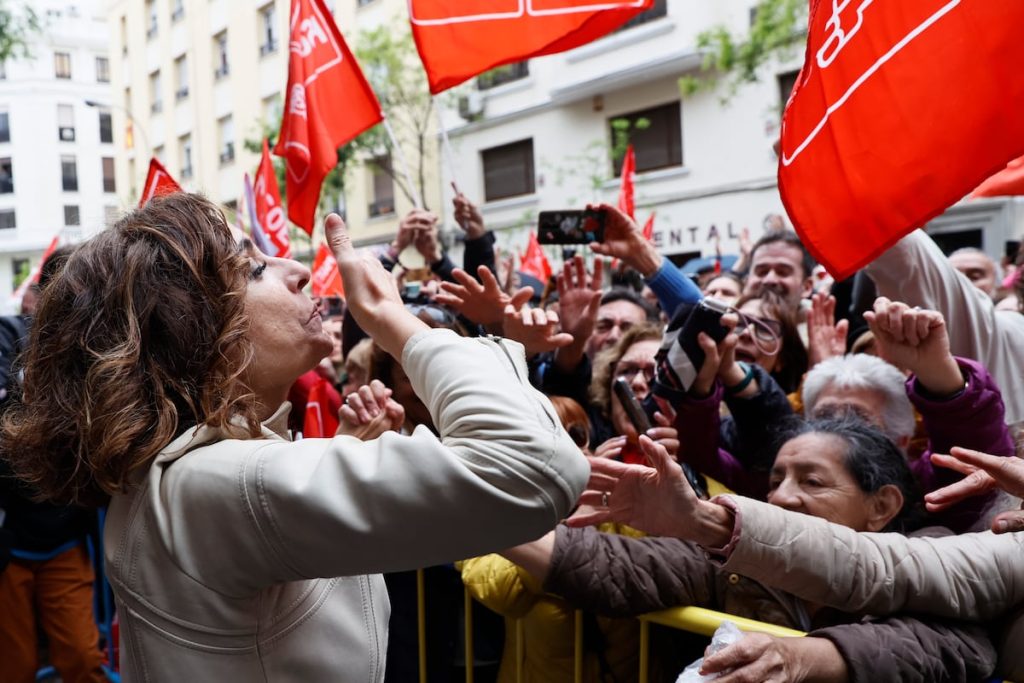The recent Socialist Party Federal Committee meeting was marked by a sense of intensity and confusion, with veteran members still reeling from the abrupt changes in musical choices, from the International to Raffaella Carrá. Despite his absence, all eyes were on President of the Government and Secretary General of the Socialists, Pedro Sánchez. This meeting echoed the events of October 1, 2016, when a decision made by Sánchez had the entire party on edge for days. Back then, the majority of the party’s powers were determined to remove him from office permanently, but now, both leaders and party members are imploring him to stay, showcasing an unprecedented show of support likely influenced by the events of eight years prior.
The traumatic departure of the former party secretary general and the subsequent primaries reshaped the structure of the PSOE, with decision-making powers now largely concentrated in the hands of the leader. Bolstered by both the party’s statutes and the overwhelming support of the members, Sánchez has effectively tailored the PSOE to his own specifications, with complete control over every federation and resolution of any organizational setbacks. His leadership has seen him make difficult decisions, such as the recent controversial amnesty for those involved in the Catalan independence movement, with the vast majority of the party following his lead, despite the hardships it may have caused.
As the party members gathered on that fateful day in October, determined to cut short Sánchez’s tenure, they could not have anticipated the powerful bond he has since forged with the party’s base. Now, whether he resigns or not, the focus has shifted to the succession planning for a leader who holds significant emotional sway over the party’s grassroots and played a pivotal role in mobilizing the left wing during the 2019 general elections. The solidarity displayed at the recent Federal Committee meeting, including a video of passionate supporters braving the rain outside party headquarters, may not be enough to keep Sánchez in office, but the party itself has been forever altered by the events of that extraordinary day.
The most impactful effects of these developments are felt closest to home, with the changes in the PSOE having wide-reaching implications for its members and supporters. The uncertainty surrounding Sánchez’s future and the potential for a leadership succession have sparked discussions and raised questions about the party’s direction moving forward. Despite the loyalty and adulation shown by many, there remain dissenting voices, such as Castilla-La Mancha President Emiliano García Page, who made sure to be present at the recent meeting in Ferraz. This new chapter in the party’s history marks a crucial turning point and a period of transition, with the outcome uncertain but the impact undeniable.


